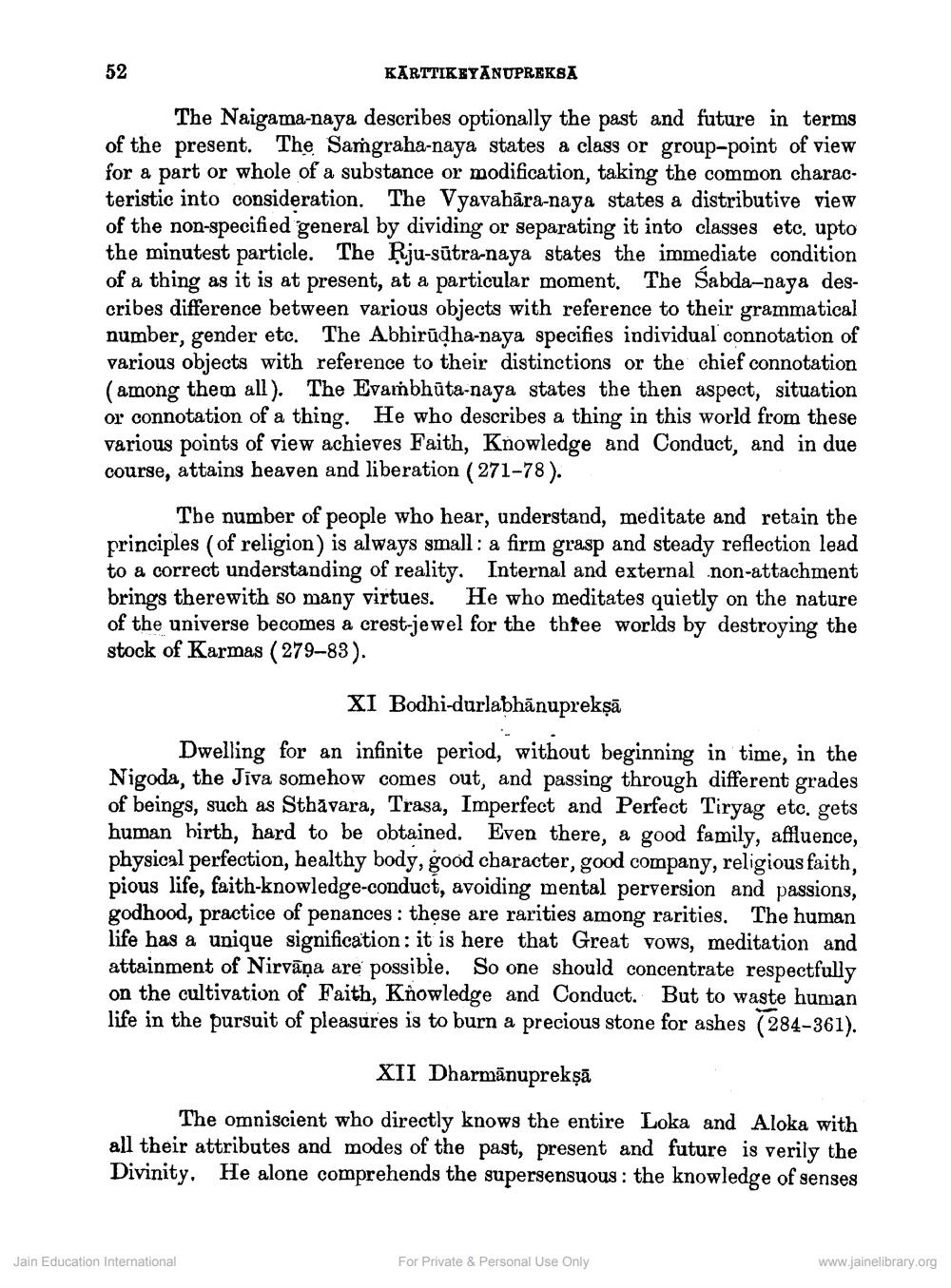________________
52
KĀRTTIKEYANUPREKSA
The Naigama-naya describes optionally the past and future in terms of the present. The Samgraha-naya states a class or group-point of view for a part or whole of a substance or modification, taking the common charac teristic into consideration. The Vyavahāra-naya states a distributive view of the non-specified general by dividing or separating it into classes etc, upto the minutest particle. The Rju-sūtra-naya states the immediate condition of a thing as it is at present, at a particular moment. The Sabda-naya describes difference between various objects with reference to their grammatical number, gender etc. The Abhirūdha-naya specifies individual connotation of various objects with reference to their distinctions or the chief connotation (among them all). The Evambhūta-naya states the then aspect, situation or connotation of a thing. He who describes a thing in this world from these various points of view achieves Faith, Knowledge and Conduct, and in due course, attains heaven and liberation (271-78).
The number of people who hear, understand, meditate and retain the principles of religion) is always small: a firm grasp and steady reflection lead to a correct understanding of reality. Internal and external non-attachment brings therewith so many virtues. He who meditates quietly on the nature of the universe becomes a crest-jewel for the thtee worlds by destroying the stock of Karmas (279-83).
XI Bodhi-durlabhānupreksā Dwelling for an infinite period, without beginning in time, in the Nigoda, the Jiva somehow comes out, and passing through different grades of beings, such as Sthāvara, Trasa, Imperfect and Perfect Tiryag etc. gets human birth, hard to be obtained. Even there, a good family, affluence, physical perfection, healthy body, good character, good company, religious faith, pious life, faith-knowledge-conduct, avoiding mental perversion and passions, godhood, practice of penances : these are rarities among rarities. The human life has a unique signification: it is here that Great vows, meditation and attainment of Nirvāņa are possible. So one should concentrate respectfully on the cultivation of Faith, Knowledge and Conduct. But to waste human life in the pursuit of pleasures is to burn a precious stone for ashes (284-361).
XII Dharmānupreksā
The omniscient who directly knows the entire Loka and Aloka with all their attributes and modes of the past, present and future is verily the Divinity. He alone comprehends the supersensuous: the knowledge of senses
Jain Education International
For Private & Personal Use Only
www.jainelibrary.org




